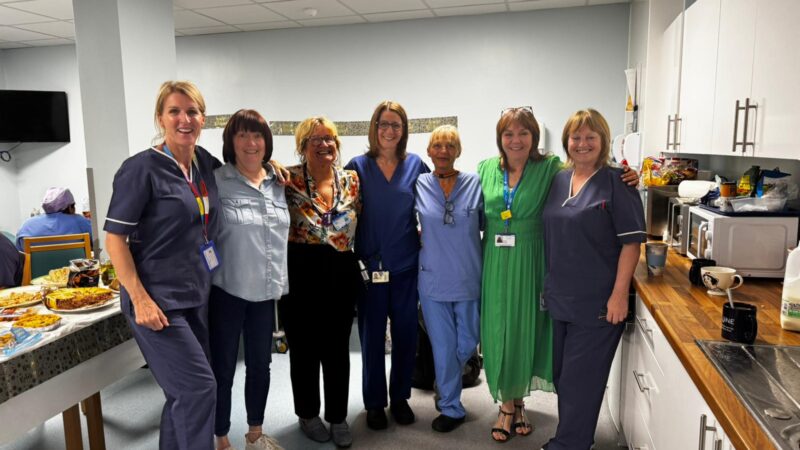
Theatre nurse Diane Miller has thanked her colleagues and “life-long friends” as she retires from nursing after first joining the organisation more than 40 years ago.
Diane started her career as a student nurse in November 1980 at the North Tees school of nursing, qualifying in November 1983.
After being offered a job in theatres – something she admits was her first choice – she accepted.
Diane has described the decision as “the best one I made and one I never really looked back from”.
Having done most specialities as a staff nurse including in vascular, facial maxillary, anaesthetics and recovery and orthopaedics, she secured a sisters post in July 1989.
With consultant surgeon Mr Peel the team did a variety of surgeries from oesophagectomy, whipples to colorectal.
She explained: “From this I was involved with Mr Peel starting and setting up the breast unit and surgeries at North Tees, we then trained together and helped to start laparoscopic (keyhole) services here.
“Once Mr Peel left I became general sister covering laparoscopic, colorectal, upper GI, breast, endocrine and at the time a small amount of urology.
“I was part of the team at North Tees who ran the Royal College of Surgeons accredited laparoscopic courses to train our future surgeons.
“Along with Mr Gopinath and Mr Rao we set up the bariatric speciality, from mostly open surgery I’ve gone to keyhole and now robotic and progressed to benefit our patients.”
Proud of what team have achieved
Diane has worked at North Tees for more than 44 years, 41 years of these in theatre.
Reflecting on her career, she said: “I have had a wonderful career at North Tees, I appreciate the experiences and opportunities I have had here and the opportunity to travel and visit other hospitals with our surgeons.
“I am proud of the contributions as a team we have made to our patients.
“I have worked with some fantastic teams of people over the years, not just colleagues but life-long friends and I’m grateful for the support I have had, it has been a great place to work.”